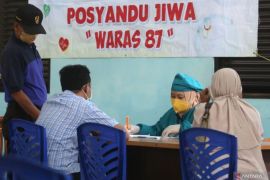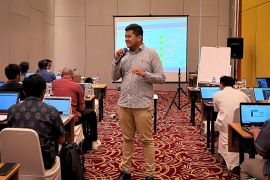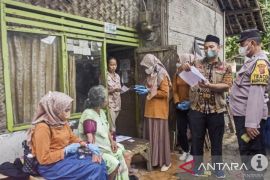If the infants are stunted, they will have low productivity during adulthood. Thus, our economic growth will be hampered.Jakarta (ANTARA) - Secretary General of the Health Ministry Kunta Wibawa Dasanugraha encouraged all regional governments to strengthen basic health services at community health centers (puskesmas) and integrated health posts (posyandu).
"We will improve the health sector through the first pillar of health transformation regarding primary services. It will bolster basic (health) services in Indonesia," he remarked, as quoted from a statement released on Thursday.
Dasanugraha made the statement at the Central Java Provincial government’s working meeting on the health sector in Solo City on Wednesday.
Puskesmas and posyandu are the foremost public health facilities, he stated.
Hence, according to the statement, it is necessary to improve health services in these facilities to also increase public awareness on health.
"We have puskesmas, posyandu, pustu (supporting puskesmas), (and) poskesdes (village health posts), all of which are means to change the people’s mindset that usually prefers (disease) treatment to promotive and preventive (health services)," the ministry’s secretary general remarked.
He pointed out that there are around 10,500 puskesmas in Indonesia.
However, he said that the number of puskesmas is inadequate to serve 270 million Indonesian people unless they are supported by posyandu.
There are around 300 thousand posyandu in Indonesia which are sufficient to serve the people, according to the statement.
“(Health) services provided at posyandu are not only for (serving) the mothers and children but also for (serving all community members’) broader human life stages from infancy, adolescence, adulthood, to the elderly," Dasanugraha noted.
He affirmed that the improvement in health services at puskesmas and posyandu aims to overcome various health issues in Indonesia, such as stunting.
Based on the results of the Indonesian Nutritional Status Survey (SSGI), the prevalence of stunting in Indonesia reached 21.6 percent in 2022.
“They (the stunted children) are (also part of) our future generations, who will continue the development of this country. If the infants are stunted, they will have low productivity during adulthood. Thus, our economic growth will be hampered," the ministry’s secretary general noted.
Hence, he emphasized that stunting must be prevented by maintaining good nutritional intakes of female adolescents, pregnant women, as well as infants from their birth until they reach two years of age.
“These (stunting prevention) services are provided by puskesmas and posyandu,” he added.
Related news: BPJS Health stresses importance of optimizing JKN program
Related news: Using genome sequencing to monitor Arcturus variant: official
Related news: Posyandu as key to handle stunting at community level: Minister
Translator: Andi Firdaus, Uyu Liman
Editor: Sri Haryati
Copyright © ANTARA 2023












